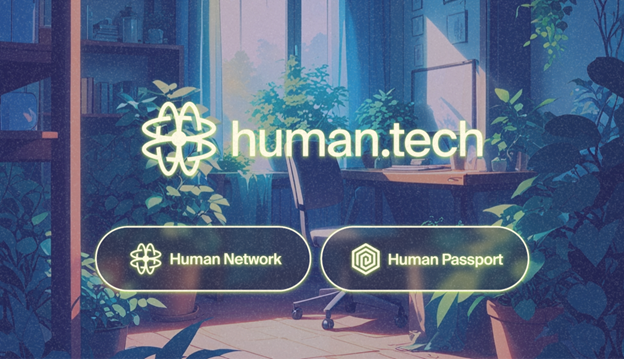Gitcoin Passport, the cryptosphere’s preeminent identity solution for sybil-prevention, has been bought out. Holonym Foundation has acquired the service and revealed plans to incorporate it into its Proof of Humanity network. The move will create a verification system that surpasses anything attempted to date – including Worldcoin.
In place of Gitcoin Passport, the new solution will operate as human.tech and now boasts more than 2M users and over 34M credentials. And this is just for starters: the promise is that the number of credentials on human.tech will rapidly surpass 50M, providing a universal solution for sybil detection and onchain reputation management.
A New Era for Digital Identity
Decentralized identity is one of web3’s most compelling use cases, enabling individuals to prove their humanity without giving up the very thing that makes them human: their identity. While the need for sybil resistance and onchain reputation systems is well understood, finding a way to balance security with privacy remains a work in progress. In acquiring Gitcoin Passport, Holonym Foundation believes it can redefine Proof of Humanity at scale.
Through rebranding Gitcoin Passport as Human Passport and integrating it into the Human Network – also known as human.tech – Holonym is creating the world’s largest privacy-preserving digital identity protocol. With over 2 million existing users and the capability to generate 34.5 million zero-knowledge (ZK) credentials, the initiative will support data sovereignty while facilitating seamless authentication.
The Need for a Universal Proof of Humanity
Decentralized identity has long struggled with two competing imperatives: preventing fraudulent actors from exploiting web3 systems while maintaining user privacy. Most traditional identity verification methods, such as KYC, demand personal disclosures that undermine the very ethos of decentralization. Meanwhile, many sybil-resistance tools rely on heuristics that are often ineffective against sophisticated bots and multi-wallet attackers.
Holonym’s acquisition of Gitcoin Passport aims to solve these challenges. By embedding privacy-first cryptographic infrastructure into a widely used reputation system, the newly formed Human Passport will support a decentralized identity model where users can verify their authenticity without giving up their social security number, mother’s maiden name and all the rest.
According to Gitcoin Passport Founder Kevin Owocki, “With human.tech taking the helm, Passport is evolving into something even greater: an identity layer that champions human dignity, privacy, and verifiable trust on the internet. This transition strengthens our shared mission to build open, decentralized systems that serve people first.”
Building a Human-Centric Internet
The implications of Human Passport extend far beyond simple identity verification. Web3 applications, from decentralized finance to SoFi, benefit from reliable identity proofs that don’t compromise user security. But to envision this as merely a web3 thing is to miss out on the bigger picture: the same identity framework can equally be applied to web2, which effectively encompasses the entire internet.
Every site, app, and platform can be accessed with the same tech, without placing user data on centralized servers where it risks being resold to advertisers or worse, exfiltrated by hackers. But initially, at least, the integrations of human.tech are likely to emulate from onchain protocols seeking to provide authentication without resorting to traditional KYC and the onerous data burden it places on projects.
As Human Network expands, it has the potential to become the backbone of a universal, privacy-preserving identity system that protects users from fraud while ensuring their autonomy remains intact. This may be the end of Gitcoin Passport as we know it, but it’s the start of a new era for digital identity management.
Disclaimer: This article is provided for informational purposes only. It is not offered or intended to be used as legal, tax, investment, financial, or other advice.
